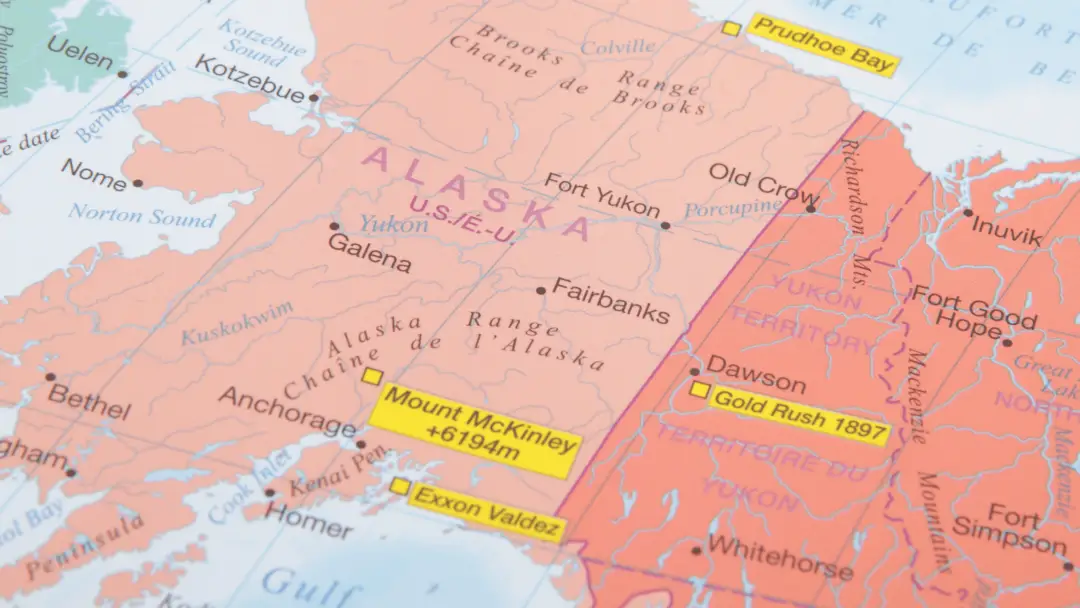Canada’s vast cultural mosaic is reflected in the diverse hobbies and activities its people enjoy. With a rich history and ever-expanding global influence, your pastimes serve as a window into the nation’s soul, revealing values of creativity, health, and community.
From the natural beauty inviting outdoor enthusiasts to the urban workshops catering to inventive minds, there is no shortage of ways to immerse yourself in Canadian culture through hobbies.

Photography, for example, is much more than a mere hobby in Canada; it’s a celebration of the country’s landscapes and a favorite pastime that constantly captures the interest of many.
Similarly, the pleasure of cooking and baking extends beyond the kitchen, acting as a heartfelt way to explore and share your heritage.
Whether you’re curious about the tastes inherited from generations or eager to try your hand at new recipes, cooking allows you to connect with others and express creativity, while also developing self-sufficiency.
If you yearn for a hobby that feeds your intellect, look no further than reading. Considered a cornerstone of leisure activities, reading not only entertains but also educates.
It’s a hobby that requires minimal investment to get started, yet it can enrich your life immeasurably.
Canvassing topics across all genres, it is a gateway to understanding the thoughts and narratives that have shaped Canadian culture and the world at large.
Whether you’re settling into a cozy corner with a novel or browsing through informative articles, the act of reading remains a beloved and enduring pastime in the Canadian lifestyle.
The Cultural Significance of Hobbies in Canadian Society

Hobbies in Canada have transcended mere pastimes, becoming a pivotal part of the national cultural tapestry and community cohesion.
Influence on Canadian Culture
Your expression through hobbies is a reflection of the rich cultural heritage in Canada, where activities from art to sports serve not merely as entertainment but as living embodiments of traditions.
In observing or participating in local art scenes, you engage in a historical continuum, appreciating and preserving the diverse expressions that define Canadian culture.
Through various hobbies, the country’s linguistic diversity is recognized and celebrated, allowing you to partake in French, English, and Indigenous language experiences.
Moreover, these pastimes provide a canvas for the blending of ancient traditions with contemporary practices, creating a living, evolving culture that invites both locals and newcomers to contribute.
Role in Community Building
When you involve yourself in Canadian hobbies, be it a knitting circle, a hockey league, or a book club, you actively participate in community building.
Each hobby group acts as a microcosm of Canadian society, often reinforcing the nation’s noted value of multiculturalism as cited by Quizlet, by uniting individuals across different backdrops with a common purpose.
These groups are not mere gatherings, they are platforms where shared interests facilitate understanding and camaraderie among diverse populations, strengthening the social fabric.
The hobbies that beckon you thus become instrumental in fostering community links and promoting social harmony within the diverse landscape of Canada.
Historical Perspective of Hobbies in Canada

The recreational activities you enjoy today in Canada have evolved significantly, with roots tracing back to Indigenous origins and the leisure pursuits of early settlers.
Evolution of Pastimes
Long before hobby shops and community centers became the go-to spots for leisure activities, Canadians found joy in more simple pastimes.
The 19th century brought a shift in society, allowing more individuals—not just the elite with “old money”—the chance to experience leisure.
This period marked an evolution where collecting various items gradually emerged as a popular hobby. From stamps to coins, and antiques, collecting allowed Canadians to preserve pieces of history and cultivate personal libraries of unique artifacts.
Another transformation in hobbies is tied closely to seasons and geography.
In the crisp winter months, traditional activities such as ice skating and hockey became defining aspects of Canadian culture.
As time progressed, these winter sports expanded to include recreational opportunities like skiing and snowboarding, often in beautiful mountain settings like the Rockies.
Indigenous Contributions
The history of hobbies in Canada is deeply enriched by its Indigenous communities, which introduced a variety of activities that both served practical purposes and were considered recreational.
Baggataway, for example, is an Indigenous game that led to the modern sport of lacrosse. This shows the significant role Indigenous culture has played in shaping Canada’s sporting landscape.
Indigenous crafts and practices, such as totem pole carving, beading, and canoe making, have also transitioned into hobbies for many Canadians today.
These are not only artistic expressions but also serve as a conduit to understanding and appreciating the rich tapestry of cultures native to this land.
At a Native center, you might find workshops or gatherings dedicated to these time-honored traditions, offering a hands-on approach to delve into history.
Moreover, influences from other cultures, like the German immigrants who brought new recreations and festive activities, have blended with Canada’s native past to create a diverse and rich hobbies tapestry.
Whether it’s engaging in Oktoberfest celebrations or building intricate model trains—a pastime favored in German communities—these activities contribute to the wealth of hobbies in Canada today.
Popular Hobbies Across Canada’s Provinces

In Canada, each province boasts a range of hobbies that resonate with the local culture and geography. Whether you’re seeking the rush of outdoor sports or the serenity of creative endeavors, there’s something for everyone.
Sports and Outdoor Activities
If you thrive on adrenaline and fresh air, sports and outdoor activities are abundant across Canadian provinces.
In British Columbia, experience the thrill of caving in the mountainous regions, where spelunking is a unique way to explore below the earth. You might find yourself navigating through Horne Lake Caves Provincial Park, a haven for this adventurous hobby.
Alberta offers landscapes that beckon you to strap on your hiking boots and follow the winding trails.
Walking and hiking in places like Banff National Park not only provide you with physical exercise but also treat you to some of the most breathtaking views in the country.
Heading east, in Ontario, the Great Lakes facilitate a culture keen on collecting.
Beachcombing along Lake Superior’s shores can result in finding unique agates, building a tactile connection to the land.
- British Columbia: Caving in Horne Lake Caves Provincial Park
- Alberta: Hiking in Banff National Park
- Ontario: Agate collecting on the shores of Lake Superior
Creative and Artistic Pursuits
If you’re drawn to expressing yourself, the provinces have much to offer.
Newfoundland and Labrador’s rugged coastline has long inspired artists; its stark beauty makes it an ideal place for painting and art creation. The local traditions ensure there are always places for you to learn and share these skills.
In Quebec, immerse yourself in the distinctive joie de vivre and partake in creative hobbies such as journaling, writing poetry, or crafting short stories inspired by the province’s rich history and culture.
Saskatchewan might surprise you with their corner on collectibles. The art of collecting, be it stamps, coins, or local crafts, is a cherished hobby that offers a sense of community and historical appreciation.
- Newfoundland and Labrador: Painting inspired by the coastal landscapes
- Quebec: Writing and journaling influenced by cultural richness
- Saskatchewan: Collecting stamps, coins, and local crafts
Getting Started with Hobbies

When you decide to embark on a new hobby, knowing where to find the right resources and communities can make all the difference. They provide the support and guidance needed to foster your interest.
Resources for Beginners
Starting a new hobby often begins with research. Books are an invaluable resource, offering in-depth knowledge and insights.
For DIY enthusiasts, hardware stores often provide free guides or workshops to help you get started with your projects. Additionally, online services offer a wide array of tutorials covering various hobbies.
- Books: Libraries and bookstores carry titles ranging from beginner to expert.
- DIY Guides: Look for beginner kits and manuals at local or online hardware stores.
- Online Tutorials: Platforms like YouTube are treasure troves for how-to videos.
When it comes to collecting or photography, beginners should focus on understanding the basics before investing in materials or equipment.
- Collecting: Start with identifying what you like, then research its history and value.
- Photography: Begin with your smartphone or a basic camera, and learn about composition and lighting.
Local Clubs and Societies
Finding a local club or society related to your chosen hobby can be a significant step. They can offer workshops, meet-ups, and the chance to learn from more experienced hobbyists.
Whether your interest lies in collecting, making crafts, or outdoor activities, there’s likely a group for you.
- Crafts and DIY: Search for local maker fairs or crafting groups.
- Collectors: Look for specific collector’s clubs; they often hold regular meet-ups or conventions.
- Photography: Camera clubs often host walks, which are perfect for honing your skills and sharing techniques.
Economic Impact and Industry of Hobbies

The hobbies that you engage in not only provide personal fulfillment and enjoyment but also contribute substantially to the economy through various industries and activities.
Hobby-Related Businesses
Your interest in hobbies has fueled the growth of hobby-related businesses.
Whether you’re a collector seeking rare items or a DIY enthusiast looking for supplies, these businesses comprise an essential part of the hobby industry.
Specialty retail stores and online platforms offer a plethora of services and products catering to a diverse range of interests.
- Marketing and Advertising: Businesses employ targeted advertising campaigns to reach hobbyists like you, utilizing social media and other online platforms to capture your attention.
- Economic Contribution: From model kits to knitting yarn, the sale of hobby materials contributes to the economy through retail.
- Collector Markets: High-value collectible markets, such as stamps, comics, or sports memorabilia, provide unique opportunities for both collector enthusiasts and investors.
Tourism and Event Hosting
Your participation in hobby-related events sustains a segment of the tourism industry.
- Events: Conventions and exhibitions related to hobbies attract visitors from various regions, bolstering local economies.
- Services: These events often require a network of services, including accommodation, dining, and transportation.
- Economic Boost: Large-scale events can provide a significant economic boost to their hosting city through both direct spending and associated tourism.
How Technology is Shaping Modern Hobbies

Technology has revolutionized the way you engage with hobbies, creating new opportunities for interaction and innovation. It has made access to hobby-related activities easier and more diverse, enhancing both your learning curve and the enjoyment of your pursuits.
Online Communities and Gaming
Gaming has been transformed by the introduction of online communities, with video games at the forefront of this change. In an era where connectivity is paramount, online platforms enable you to connect with fellow gamers across the globe, participate in massive multiplayer experiences, and share strategies in real-time. Video games like Fortnite and League of Legends have become more than just games; they are digital spaces where people meet, socialize, and build communities.
Programming and graphic design, once niche hobbies, have now soared in popularity due to the wealth of resources available online.
Platforms such as GitHub provide a space for you to collaborate on projects, learn new coding languages, and showcase your work to potential employers or clients. Similarly, graphic design enthusiasts benefit from online tutorials and feedback from a community of peers.
Advancements in Hobby Gear
Technological advancements have significantly impacted the gear you use in your hobbies, making previously inaccessible activities now readily available.
- Drones: Once a high-end technology for military use, drones are now widely available for your personal use. Whether it’s for aerial photography, racing, or simply recreational flying, drones offer a unique perspective on the world and a new hobby to master.
- Rockets: The amateur rocketry community has expanded with the advancement of technology, enabling you to experiment with propulsion systems and aerodynamics. This not only provides a thrilling hobby but also contributes to a deeper understanding of physics and engineering.
Innovations in these technologies continue to evolve, offering you new gears and gadgets to enhance your experience. With improved accessibility to advanced equipment, your potential to dive deeper into the complexities of these hobbies has never been greater.
Hobbies as Tools for Personal Development

Engaging in hobbies can enhance your capabilities and cultivate a sense of well-being. They offer more than just leisure; they provide avenues for self-improvement and mental health enrichment.
Skill Building and Educational Hobbies
Hobbies like reading and writing serve as powerful tools for cognitive development. They not only improve your language skills but also expand your knowledge base and enhance your creativity.
- Reading: A variety of genres exposes you to new ideas and ways of thinking, which can lead to better problem-solving abilities.
- Writing: Regular practice can improve clarity of thought and communication.
- Language learning: Opens up new cultural vistas and enhances cognitive flexibility.
Singing also finds its place as a multifaceted hobby. On a physical level, it’s an exercise for your vocal cords, but it also improves linguistic abilities and emotional expression.
| Hobby | Skills Developed | Additional Benefits |
|---|---|---|
| Writing | Communication, Creativity | Increased knowledge, better memory |
| Language Learning | Cultural awareness, Cognitive Skills | Improved multitasking |
| Singing | Linguistic skills, Vocal ability | Stress relief, enhanced mood |
Mindfulness and Well-being
Hobbies such as martial arts and boxing might seem physically demanding, yet they are equally beneficial for mental health. These activities require a high level of presence and discipline, leading you towards a mindful state where you’re focused on the moment.
- Boxing: Hones reflexes and improves focus while instilling a sense of discipline.
- Martial arts: Cultivates mental fortitude alongside physical prowess, promoting a balance between mind and body.
Adopting these hobbies can lead to stress reduction and an overall sense of achievement. They encourage you to set goals and persevere, fostering resilience and personal growth.
| Hobby | Mental Benefits | Wellness Contributions |
|---|---|---|
| Boxing | Focus, Discipline | Physical fitness, stress relief |
| Martial Arts | Mental fortitude, Mindfulness | Enhanced coordination, self-defense skills |
The Future of Hobbies in Canada

Hobby landscapes are always evolving, and Canada is no exception. With an eye towards sustainability and culture, certain activities are becoming more prominent.
Emerging Trends
In recent years, technology has played a pivotal role in shaping new hobbies and will continue to do so. Activities like drone piloting and virtual reality (VR) gaming are gaining popularity among Canadians.
You might find more community spaces and retailers offering drone flying courses or VR experience centers to cater to these interests.
As digital fabrications like 3-D printing become more accessible, hobbies that blend the digital with the physical world like DIY electronics and robotics are expected to flourish.
They not only offer educational value but also provide a creative outlet for makers of all ages.
The Growth of Eco-Conscious Activities
There is a rising tide of eco-consciousness influencing Canadian hobbies, especially in urban areas where green spaces are cherished.
Container gardening has become a beloved pursuit for city dwellers looking to bring nature closer to home. You’ll likely see more local workshops and online tutorials on how to maximize your balcony or windowsill space with both ornamental plants and edible crops.
Sustainability is another key driver, pushing forward activities like upcycling and sustainable crafting.
These hobbies are not just about passing the time; they’re about passing on a healthier planet. Keep an eye out for community programs that support sustainable practices and teach skills such as garment repair, woodworking using reclaimed materials, or composting.
Frequently Asked Questions

Canadian hobbies reflect the diversity and cultural heritage of the country, offering a range of activities that cater to various interests and age groups. Whether you’re looking to engage with the community or pursue individual interests, these FAQs highlight key aspects to consider.
What are the top 10 most popular hobbies in Canada?
In Canada, you’ll find a variety of hobbies that are popular due to the country’s diverse climate and cultural makeup. Winter sports like skiing and snowboarding are prevalent, but so are year-round activities such as reading and cooking.
The list includes outdoor pursuits such as hiking and cycling, as well as more leisurely hobbies like gardening and gaming.
How has the history of sports shaped Canadian culture?
Canadian culture has been significantly shaped by sports, with hockey often considered the national winter sport.
Historical activities like curling and skating also hold a special place in the country’s heritage, fostering a sense of community and national pride. Through these sports, Canada has developed a reputation for excellence and sportsmanship on the international stage.
What are the most common hobbies among different age groups in Canada?
Hobbies in Canada vary across different age groups, reflecting changing interests and abilities.
Children and teenagers might favor activities such as team sports and video gaming, while adults may tend toward fitness-related hobbies, DIY projects, or the arts.
Older adults often enjoy pastimes like golfing, crafting, and volunteering, all of which provide social interaction and mental stimulation.
What activities are most Canadians engaged in frequently?
Many Canadians regularly engage in pastimes that allow them to enjoy the natural beauty of their country, such as camping and fishing.
Physical fitness activities like yoga and gym workouts are also highly frequented, along with cultural pursuits including attending live music, theater events, and visiting museums.
How can beginners get involved in popular Canadian hobbies?
For beginners eager to dive into Canadian hobbies, local community centers and recreational programs are a great starting point. Many offer introductory classes and equipment rentals to help you get started.
You can also join local clubs or online forums specific to your interest. For example, photography groups or book clubs can help you gain insights and find companionship in your new hobby.





